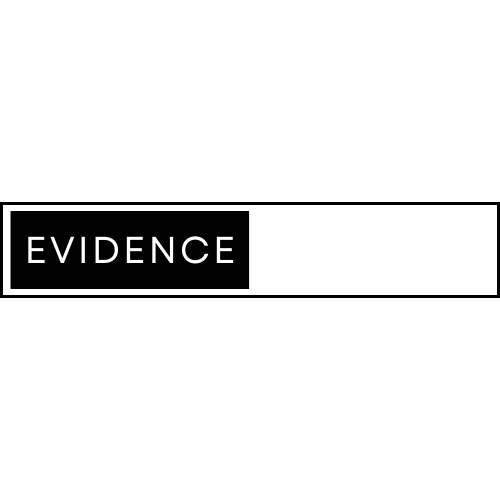Eric Chen Ph.D.

Practice Active Allyship in Groups and in Daily Interactions

As we start the year of 2023 and the Year of the Rabbit, I am delighted to introduce our new DEIB member, Shanique Brown, who is joining the other DEIB members: Josh Gross, Pavani Khera (student representative), Elena Kim, Joe Miles, Aziza A. B. Platt (Vice Chair), and Elizabeth Weiner. Here is a brief introduction of Shanique: Shanique (she/her) is an assistant professor of industrial-organizational psychology at Wayne State University. Her primary area of research relates to cognitive processes and states relevant to work and organizational psychology. As a graduate student, Shanique was able to develop her knowledge of the workgroup and team literature while doing research on team composition for future long-duration space missions. Since then, she has integrated her interest in cognition with the workgroup and team literature. Shanique is currently examining decision making and knowledge integration in teams.
As we welcome Shanique as a new member on the DEIB Committee, I am reminded of the importance of helping a new member to feel a sense of inclusion and belonging quickly through active allyship.
In “How to Be an Ally if You Are a Person with Privilege,” Frances E. Kendall describe allyship as “An active practice of using power and privilege through intentional, consistent, and positive efforts to achieve equity and inclusion and end oppression in solidarity with a group of people who are systemically disempowered.”
In celebration of Black History Month, recently in my group counseling class attended by 23 students who are pursuing graduate degrees in counseling and school psychology, I started the class with a quote from Maya Angelou: “Do the best you can until you know better. Then when you know better, do better.” I then asked the question, “Think of a marginalized identity you do NOT hold. Which of the following may be a main barrier for you to engage in active allyship on behalf of that identity?
Almost 70% of the students identified the main barrier of active allyship as: “I wouldn’t want to say the wrong thing,” with the next main barrier being “I worry I may be accused of being performative.” Underlying both barriers seems to be our fear of judgment from others. My students and I then had a long discussion about how allyship is a lifelong, active, non-performative, imperfect, process of cultivating supportive relationships with marginalized individuals. We then discussed Poornima Luthra’s (2022) “7 Ways to Practice Active Allyship”:
- Deep Curiosity: understanding allyship is rooted in interest in our own and others’ diverse experiences.
- Honest Introspection: identifying how our own assumptions and biases shape our behavior and views.
- Humble Acknowledgement: recognizing that all of us with our privileges and intersectional identities will never fully understand another’s life experience just as they will not know our own.
- Empathetic Engagement: engaging and interacting in a way and with a tone that allows for others to examine their biases without becoming defensive.
- Authentic Conversations: nurturing a psychologically safe environment for interpersonal risk-taking without fear of repercussions.
- Vulnerable Interactions: embracing our own vulnerability to model for others in identifying (hidden) biases.
- Courageous Responsibilities: leveraging our own privilege to support and give voice to the voiceless.
I then introduced the multicultural orientation (MCO) framework within the small group context (Kivlighan & Chapman, 2018). In this framework, group practitioners are called to maintain a sense of cultural humility and a high degree of cultural comfort in order to take advantage of cultural opportunities in the group process – the opportunities for us to become active allies to those with marginalized identities, concealable or otherwise, and the opportunities to optimize the sense of belonging and connections among group members. After all, each small group consists of individuals with intersectional identities that often coexist and interact on multiple, simultaneous levels. And our intersectional identities, with the accompanied experiences of privilege or marginalization, shape our experience of the world (Crenshaw, 1989).
As Luthra simply put it, “We don’t experience inclusion through strategies and roadmaps. We experience it through our day-to-day interactions with our colleagues — over lunch, by the coffee machine, during meetings, etc. We can’t move the pendulum without each one of us seeing ourselves as key enablers of inclusive workplaces — workplaces where everyone feels valued, respected, appreciated, and enjoys a sense of belonging.”
At the end of our class discussion, I invited the students to join me in practicing active allyship in their daily interactions with others by: (a) exercising your (non)ordinary privilege as an ally; (b) finding points of (dis)connection in each relationship; and (c) ELF–engaging others, listening, and following up with questions or comments.
In a year of economic uncertainties, global conflicts and devastating disasters, and recovering from the COVID-19 pandemic, what are your main barriers to engaging in active allyship? What are your strengths as an ally, and where do you want to continue to grow? It is by periodically reflecting on questions like these that we can continue to cultivate active allyship both within and beyond our communities.
Eric Chen, DEIB Committee Chair
Eric C. Chen echen@fordham.edu
Resources
APA Div. 49 Diversity Equity Inclusion Belonging (DEIB) Resources
References
Crenshaw, K. (1993). Demarginalizing the intersection of race and sex: A Black feminist critique of antidiscrimination doctrine, feminist theory and antiracist politics. In D. K. Weisbert (Ed.), Feminist legal theory: Foundations (pp. 383–395). Philadelphia: Temple University Press. (Original work published 1989).
Kendall, F. E. (2003). How to be an ally if you are a person with privilege. http://www.scn.org/friends/ally.html
Kivlighan, D. M. III, & Chapman, N. A. (2018). Extending the multicultural orientation (MCO) framework to group psychotherapy: A clinical illustration. Psychotherapy, 55(1), 39–44. https://doi.org/10.1037/pst0000142
Luthra, P. (2022, November 8). 7 ways to practice active allyship. Harvard Business Review. https://hbr.org/2022/11/7-ways-to-practice-active-allyship


